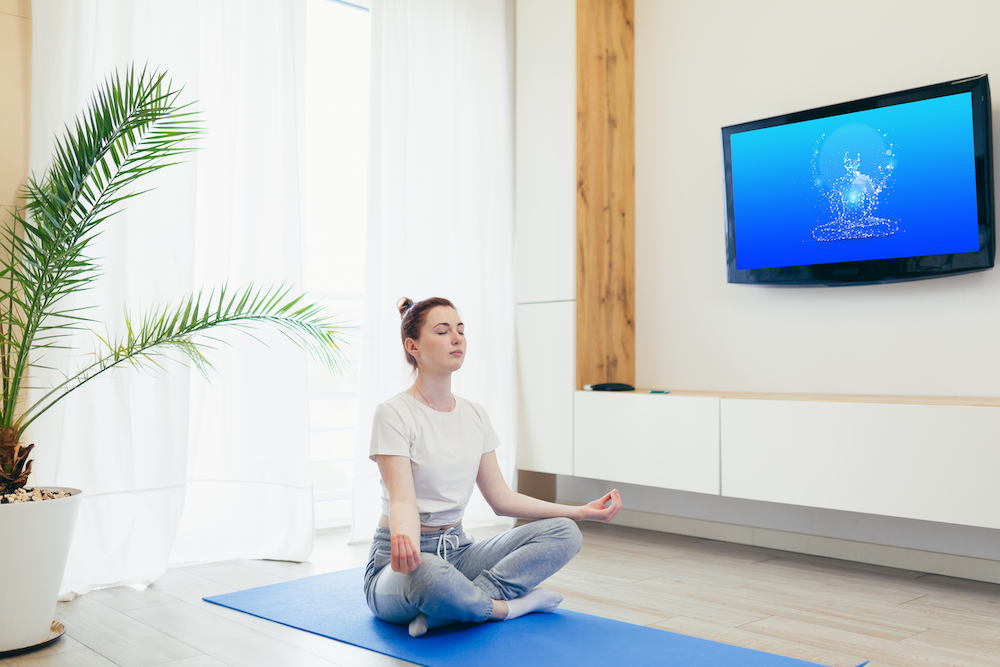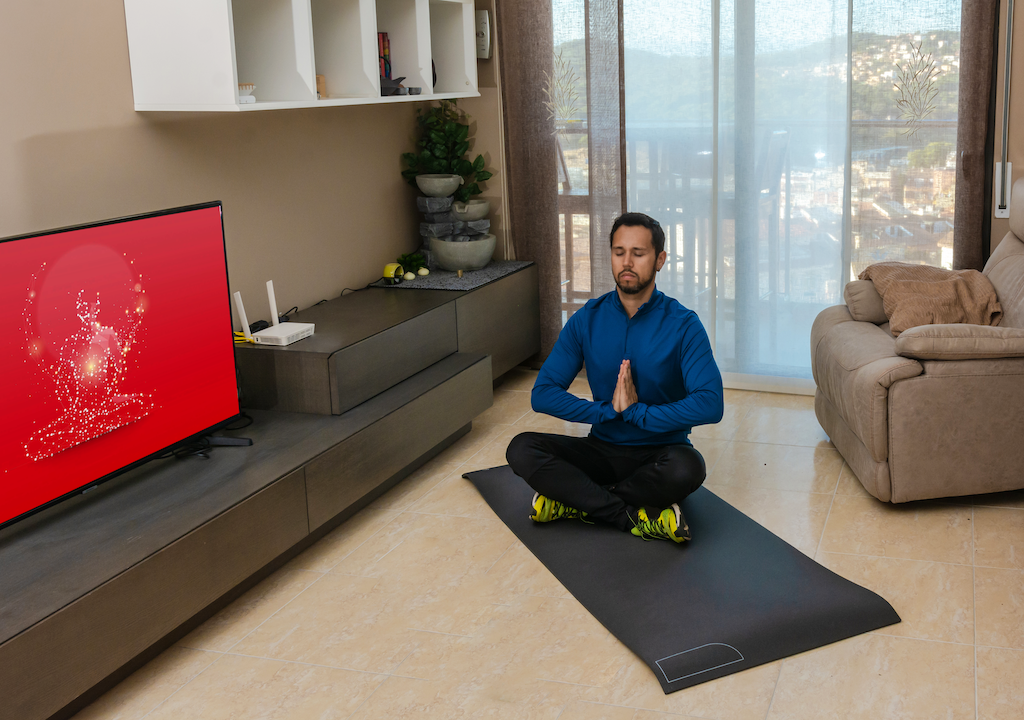
In today’s fast-paced world, finding moments of tranquility and inner peace has become increasingly essential. Meditation is a powerful practice that can help you achieve a calm and centered state of mind. While attending in-person meditation classes can be beneficial, the convenience and accessibility of online meditation videos have made them a popular choice for individuals seeking a flexible and personalized meditation experience. We will explore the advantages of incorporating online meditation videos into your practice and provide valuable insights to help you get started on your meditation journey.
What is meditation?
Meditation is a practice that involves training the mind to focus and redirect thoughts, ultimately leading to a state of mental clarity and emotional calm. It is often associated with spiritual or religious traditions, but it can also be practiced independently as a secular technique for improving well-being.
At its core, meditation involves engaging in a series of techniques or exercises to cultivate mindfulness, concentration, and relaxation. While there are various forms of meditation, most techniques share common elements:
- Mindfulness: Mindfulness is a fundamental aspect of meditation. It involves paying attention to the present moment without judgment. By observing thoughts, emotions, bodily sensations, and the surrounding environment, individuals develop a heightened sense of awareness and presence.
- Focus and concentration: Many meditation practices involve focusing attention on a specific object or anchor, such as the breath, a mantra, a sound, or a visual image. This focused concentration helps train the mind to stay present and reduces distractions caused by wandering thoughts.
- Breath awareness: Paying attention to the breath is a common technique in meditation. By observing the natural rhythm of the breath, individuals anchor their attention to the present moment and cultivate a sense of calmness and relaxation.
- Body awareness: Some meditation practices involve body scan techniques, where attention is systematically directed to different parts of the body. This technique helps individuals develop a deeper connection with bodily sensations, release tension, and promote relaxation.
- Non-attachment to thoughts: In meditation, individuals are encouraged to observe thoughts and emotions as they arise without getting caught up in them or attaching judgments. This practice fosters a sense of detachment and allows individuals to develop a more objective and compassionate relationship with their own mental processes.
The ultimate goal of meditation is not to stop thoughts or achieve a particular mental state but rather to cultivate a non-reactive and accepting attitude towards one’s experiences. Regular practice can lead to numerous benefits, including stress reduction, improved focus, increased self-awareness, emotional well-being, and a greater sense of inner peace.
It is important to note that meditation is a personal practice, and there is no right or wrong way to do it. Each individual may find different techniques or approaches that resonate with them. Exploring various meditation styles and finding what works best for you is key to establishing a fulfilling meditation practice.
Transform your tv into a meditation area
Discover the amounts of benefits!
Meditation offers numerous benefits for both the mind and body. Here are some reasons why incorporating meditation into your routine can be highly beneficial:
Stress reduction
Meditation is renowned for its ability to reduce stress levels. By engaging in regular meditation practice, you can learn to calm your mind, relax your body, and cultivate a greater sense of inner peace. Through focused breathing and mindfulness techniques, meditation helps lower cortisol levels (the stress hormone) and promotes a state of relaxation.
Improved mental well-being
Meditation has a positive impact on mental health. It can reduce symptoms of anxiety, depression, and improve overall psychological well-being. Regular practice can help increase self-awareness, enhance emotional regulation, and develop a more positive mindset. By observing and acknowledging your thoughts without judgment, meditation allows you to gain clarity and cultivate a more balanced perspective on life’s challenges.
Enhanced concentration and focus
In a world filled with distractions, meditation can significantly improve concentration and focus. Through mindfulness meditation, you train your mind to stay present and fully engaged in the current moment. This heightened focus can extend to other areas of your life, such as work or studies, enabling you to enhance productivity and efficiency.
Increased self-awareness
Meditation cultivates a deeper connection with yourself. By consistently dedicating time to turn inward and observe your thoughts, emotions, and sensations, you develop a heightened sense of self-awareness. This self-reflection allows you to recognize harmful patterns, negative thought processes, and self-limiting beliefs. With increased self-awareness, you gain the power to make conscious choices and respond to situations in a more mindful and intentional manner.
Better sleep quality
Many individuals struggle with sleep-related issues, such as insomnia or difficulty falling asleep. Regular meditation practice can promote better sleep quality by calming the mind and inducing a state of relaxation. By incorporating mindfulness techniques before bed, such as deep breathing or body scan meditations, you can create a peaceful bedtime routine that prepares your body and mind for restful sleep.
Physical health benefits
Meditation not only benefits the mind but also has a positive impact on physical health. Research suggests that regular meditation practice can lower blood pressure, reduce the risk of heart disease, boost the immune system, and improve overall well-being. By reducing stress and promoting relaxation, meditation positively influences the body’s physiological responses.
Cultivation of compassion and gratitude
Meditation practices such as loving-kindness or gratitude meditations can help foster compassion and empathy towards oneself and others. These practices promote a sense of interconnectedness and strengthen positive emotions. By cultivating a compassionate mindset, you can experience greater happiness, improve relationships, and contribute to a more harmonious society.
Meditation offers a wide range of benefits for individuals seeking personal growth, stress reduction, enhanced well-being, and improved focus. By dedicating time to quiet the mind and cultivate mindfulness, you can experience the transformative power of meditation in your life.
Meditation & Fit
In these online meditation sessions we look for inner peace. Because relaxation and mindfulness is just as important as working out! Meditating regularly helps against stress, improves your sleep and gives you more focus. Create conscious moment for yourself and the right balance between body and mind!
